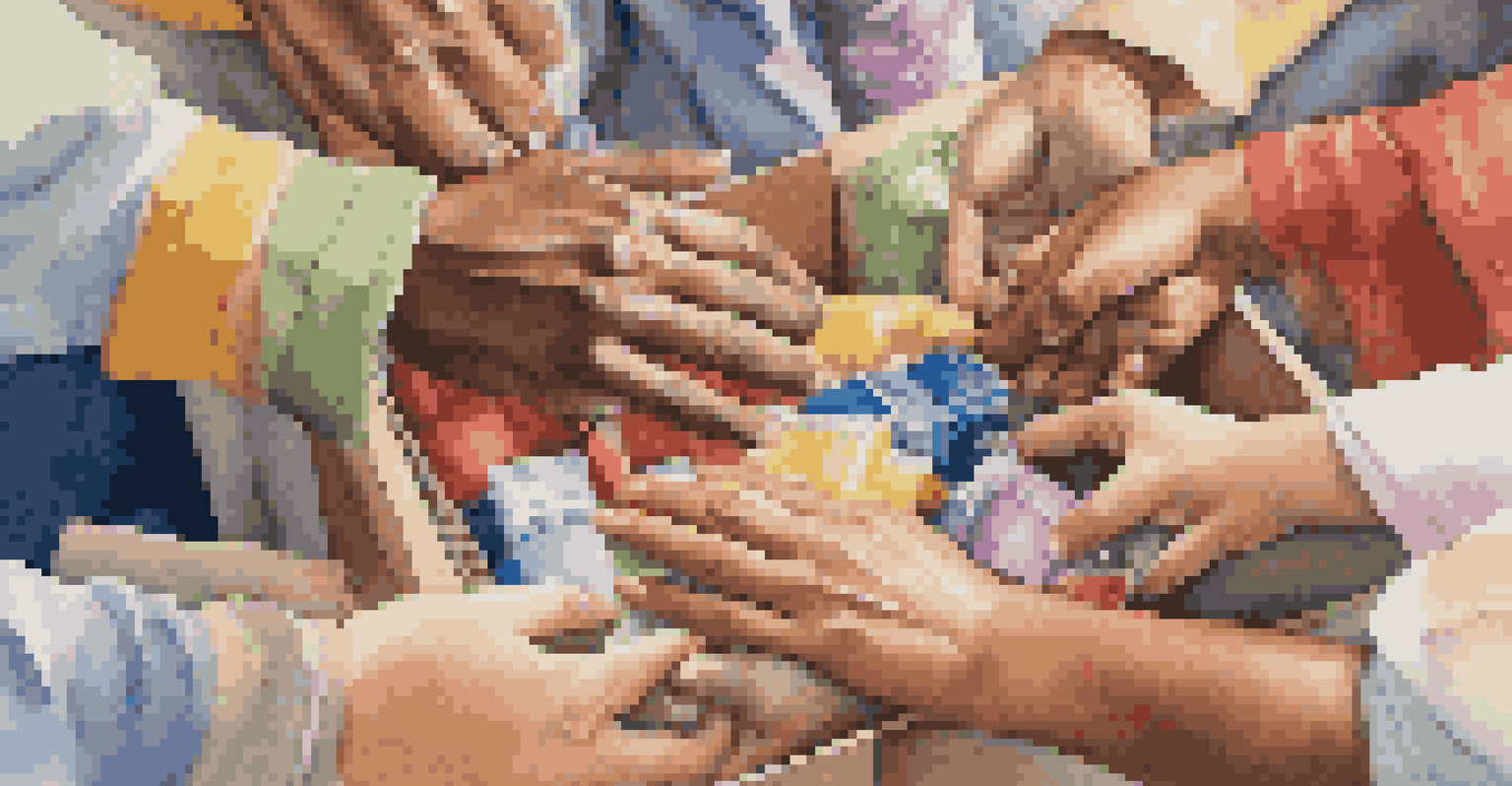Utilizing Volunteer Experience in Job Interviews Effectively

Understanding the Value of Volunteer Experience
Volunteer experience can be a powerful asset in job interviews. It showcases not only your commitment to community service but also various skills that are transferable to the workplace. Employers often look for candidates who demonstrate initiative, teamwork, and leadership, all of which can be highlighted through your volunteer work.
Volunteering is at the very core of being a human. No one has made it through life without someone else’s help.
When you talk about your volunteer experiences, you're not just listing activities; you're telling a story about your growth and impact. This narrative can resonate with interviewers, as it reflects your character and values. It’s like painting a picture of who you are beyond your resume.
Additionally, many organizations value social responsibility, making your volunteer experience even more relevant. By presenting this aspect of your background, you're aligning yourself with the company’s culture and mission, which can give you a competitive edge.
Identifying Relevant Volunteer Experiences
Not all volunteer experiences carry the same weight in a job interview. Start by identifying roles that align closely with the job you’re applying for. For example, if you're applying for a marketing position, a role where you organized community events or managed social media for a non-profit can be highly relevant.

Think about the skills you developed during your volunteer work. Did you lead a team? Manage a budget? These are all valuable experiences that can demonstrate your capabilities. By choosing examples that highlight key skills and responsibilities, you make it easier for interviewers to see your potential.
Volunteer Experience Adds Value
Highlighting your volunteer work in interviews showcases your commitment, transferable skills, and alignment with company values.
It's also helpful to consider the impact of your work. Sharing specific outcomes, such as how many people benefited from your volunteer efforts or any recognition you received, can make your experiences more compelling.
Crafting Your Volunteer Story
When it comes to interviews, storytelling is powerful. Craft a narrative around your volunteer experiences that connects to the job you're seeking. Start with the motivation behind your involvement, explaining why you chose that particular organization or role.
The best way to find yourself is to lose yourself in the service of others.
Next, delve into your responsibilities and the skills you acquired. Use the STAR method (Situation, Task, Action, Result) to structure your story. This approach not only makes your experience clearer but also highlights your problem-solving abilities and the positive outcomes of your efforts.
Conclude by linking your volunteer experience back to the position. Explain how what you learned and accomplished makes you a great fit for the job, reinforcing your value as a candidate.
Demonstrating Transferable Skills
Many skills developed through volunteering are transferable to the corporate world. For instance, teamwork and communication are essential in both settings. You might have collaborated with diverse groups during your volunteer work, showcasing your ability to work well with others.
Additionally, skills such as time management, project planning, and adaptability are often honed in volunteer roles. Sharing examples of how you successfully navigated challenges or met deadlines can demonstrate your readiness for the professional environment.
Craft Your Volunteer Narrative
Using the STAR method to structure your volunteer stories can effectively demonstrate your problem-solving skills and relevance to the job.
Employers appreciate candidates who have demonstrated these skills in real-world situations. By effectively communicating how your volunteer experiences translate to the job, you enhance your profile as a well-rounded candidate.
Preparing for Common Interview Questions
Interviews often include questions that give you the opportunity to discuss your volunteer experience. Be prepared to answer questions like, 'Can you tell me about a time you faced a challenge while volunteering?' or 'What did you learn from your volunteer role?'
Practice your responses to these questions, keeping your stories concise yet impactful. This preparation allows you to speak confidently and clearly about your experiences, helping you stand out in the interview.
Remember to tailor your answers to highlight how your volunteer work has prepared you for the specific job. This ensures that the relevance of your experiences is clear to the interviewer, making your application stronger.
Using Your Network for Support
Your volunteer network can be a valuable resource during the job search. Reach out to fellow volunteers or organization leaders for references or to gather insights into similar job roles. They can provide testimonials about your contributions, which can strengthen your application.
Networking with individuals you’ve met through volunteering can also lead to job opportunities. Many people in non-profit sectors have connections in various industries, and they may be aware of openings that align with your skills.
Network for Job Opportunities
Leveraging your volunteer network can provide valuable references and lead to job openings that match your skills.
Additionally, consider joining professional organizations related to your volunteer work. This can further expand your network and provide additional resources as you navigate your job search.
Following Up After the Interview
After the interview, consider sending a thank-you note that references your volunteer experiences. This reinforces your story and keeps it fresh in the interviewer's mind. A simple mention of how your volunteer work relates to the company’s mission can help you stand out.
In your follow-up, you can also reiterate key points discussed during the interview. If there was a particular aspect of your volunteer experience that resonated with the interviewer, highlight that again to remind them of your unique qualifications.

Ultimately, following up is another opportunity to communicate your enthusiasm for the position and the value you bring, especially through your rich background in volunteering.